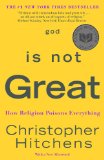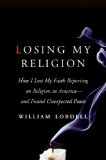Summary | Excerpt | Reading Guide | Reviews | Read-Alikes | Genres & Themes | Author Bio

Brilliantly and sympathetically shows us how and why fundamentalist groups came into existence and what they yearn to accomplish.
In the late twentieth century, fundamentalism has emerged as one of the most powerful forces at work in the world, contesting the dominance of modern secular values and threatening peace and harmony around the globe. Yet it remains incomprehensible to a large number of people. In The Battle for God, Karen Armstrong brilliantly and sympathetically shows us how and why fundamentalist groups came into existence and what they yearn to accomplish.
We see the West in the sixteenth century beginning to create an entirely new kind of civilization, which brought in its wake change in every aspect of life -- often painful and violent, even if liberating. Armstrong argues that one of the things that changed most was religion. People could no longer think about or experience the divine in the same way; they had to develop new forms of faith to fit their new circumstances.
Armstrong characterizes fundamentalism as one of these new ways of being religious that have emerged in every major faith tradition. Focusing on Protestant fundamentalism in the United States, Jewish fundamentalism in Israel, and Muslim fundamentalism in Egypt and Iran, she examines the ways in which these movements, while not monolithic, have each sprung from a dread of modernity -- often in response to assault (sometimes unwitting, sometimes intentional) by the mainstream society.
Armstrong sees fundamentalist groups as complex, innovative, and modern -- rather than as throwbacks to the past -- but contends that they have failed in religious terms. Maintaining that fundamentalism often exists in symbiotic relationship with an aggressive modernity, each impelling the other on to greater excess, she suggests compassion as a way to defuse what is now an intensifying conflict.
 Michael Wolfe, author of The Hadj and One Thousand Roads to Mecca
Karen Armstrong takes the bull by the horns in this richly detailed study of Fundamentalism's many faces through the ages. Part One reveals the roots; Part Two explores the process by which Judaism, Christianity, and Islam have each occasionally devolved from creative faith to destructive fanaticism. The book is a timely reminder that religious ideologies and secular advocates of the nation state, having helped create each other, must moderate their conflicts or pay the price -- in violence at the expense of spirit.
Michael Wolfe, author of The Hadj and One Thousand Roads to Mecca
Karen Armstrong takes the bull by the horns in this richly detailed study of Fundamentalism's many faces through the ages. Part One reveals the roots; Part Two explores the process by which Judaism, Christianity, and Islam have each occasionally devolved from creative faith to destructive fanaticism. The book is a timely reminder that religious ideologies and secular advocates of the nation state, having helped create each other, must moderate their conflicts or pay the price -- in violence at the expense of spirit. Rabbi Harold Kushner, author of When Bad Things Happen to Good People and How Good Do We Have to Be?
An impressive achievement. Armstrong has mastered a mountain of material, added some brilliant insights of her own, and made it accessible to the general reader.
Rabbi Harold Kushner, author of When Bad Things Happen to Good People and How Good Do We Have to Be?
An impressive achievement. Armstrong has mastered a mountain of material, added some brilliant insights of her own, and made it accessible to the general reader.
If you liked The Battle For God, try these:

by Christopher Hitchens
Published 2009
Hitchens frames the argument for a more secular life based on science and reason, in which hell is replaced by the Hubble Telescope's awesome view of the universe, and Moses and the burning bush give way to the beauty and symmetry of the double helix.

by William Lobdell
Published 2009
William Lobdell's journey of faith—and doubt—may be the most compelling spiritual memoir of our time. It is a book about life's deepest questions that speaks to everyone: Lobdell understands the longings and satisfactions of the faithful, as well as the unrelenting power of doubt.
From the moment I picked your book up...
Click Here to find out who said this, as well as discovering other famous literary quotes!